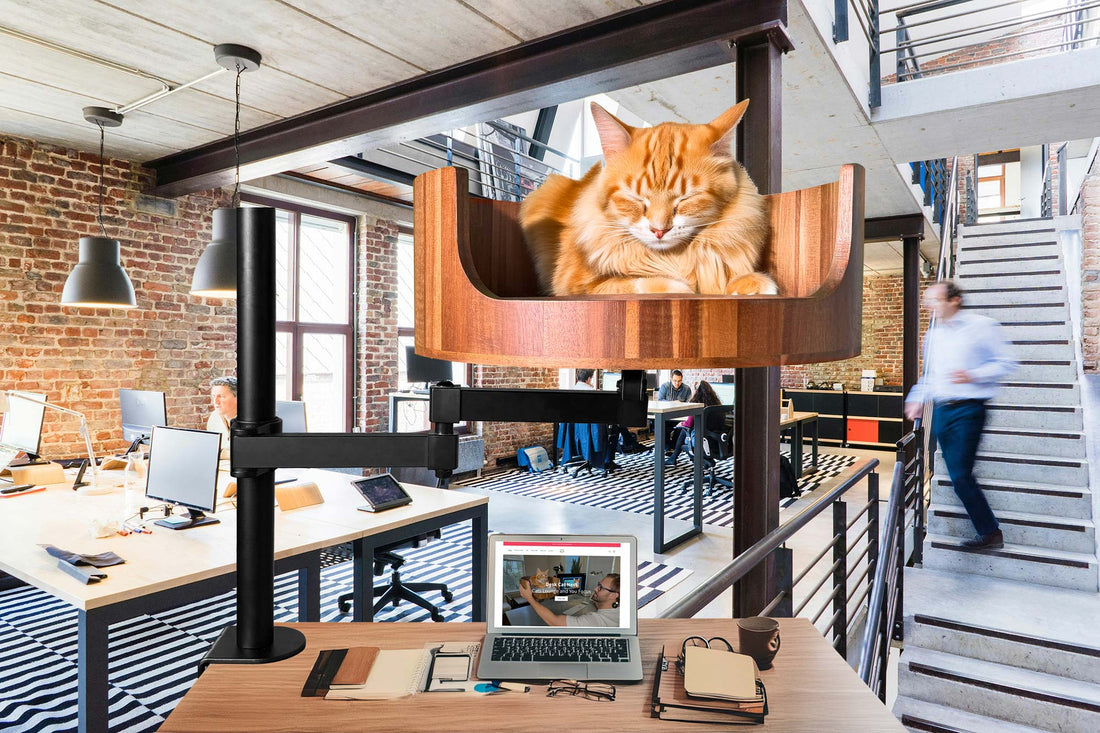
Why Do Cat Vibrate: Understanding Feline Purring
Share
Have you ever noticed your cat snuggling up close to you, purring contentedly as it nuzzles against your side? This adorable behavior is a common occurrence for cat owners, but have you ever wondered why cats purr in the first place? In this article, we will delve into the fascinating world of feline purring and explore the reasons behind this unique behavior.
From ancient Egypt to modern times, cats have captivated our hearts with their mysterious purring sounds. While many theories exist as to why cats purr, researchers have discovered that these vibrations serve a variety of purposes, including communication, self-soothing, and healing. By understanding the complexities of feline purring, we can deepen our bond with our furry companions and provide them with the care and attention they truly deserve. So, grab a cup of tea and settle in as we unlock the secrets behind why cats vibrate and purr.
1. Cats purr when they are content but may also purr when they are anxious or in pain.
2. Purring is believed to have a calming effect on both cats and humans.
3. Cats may purr to communicate with their owners, as a form of social bonding.
4. Some scientists believe that purring releases endorphins, which act as natural painkillers for cats.
5. Understanding why cats purr can help owners better care for and communicate with their feline companions.
What Causes Cats to Vibrate?
There are several reasons why cats purr, with the most common being contentment and relaxation. When a cat is happy and comfortable, they may purr as a way to show their satisfaction. Purring can also be a form of self-soothing for cats when they are anxious or in pain. Additionally, some experts believe that purring can have healing properties, as the vibrations produced during purring may help promote healing and reduce stress levels in cats.
Physical Mechanisms of Purring
When a cat purrs, it is believed to be generated by the rapid contraction and relaxation of muscles in the cat’s larynx. These muscle movements create vibrations that are then amplified by the cat’s vocal cords, resulting in the familiar purring sound. The frequency of these vibrations typically ranges from 25 to 150 Hertz, which can have a calming effect on both the cat and its human companions. Interestingly, not all domestic cats purr, as this behavior is thought to be specific to certain species within the Felidae family.
Other Reasons for Purring
While contentment and relaxation are the most common reasons for purring, cats may also purr in other situations. For example, mother cats will often purr to communicate with their kittens, creating a bond and sense of security. Some cats may purr during times of stress or illness as a way to comfort themselves. Additionally, cats may purr as a means of communication with their human companions, signaling a desire for attention, food, or affection.
When to Be Concerned About Purring
Although purring is typically a sign of a happy and healthy cat, there are some instances where excessive purring or changes in a cat’s purring behavior may indicate an underlying issue. If a cat suddenly starts purring much more frequently than usual, it could be a sign of pain, discomfort, or illness. Similarly, if a cat stops purring altogether, it may be a cause for concern and should prompt a visit to the veterinarian for further evaluation. It is always important to monitor your cat’s behavior and consult with a professional if you have any concerns about their well-being.
Desk Cat Nest FAQ
Why do cats vibrate?
Cats may vibrate or tremble when they are purring. Purring is a way for cats to communicate happiness and contentment. The vibrations are created by the cat's vocal cords as they inhale and exhale while purring.
Is it normal for cats to vibrate while sleeping?
Yes, it is perfectly normal for cats to vibrate or tremble while they are sleeping. Cats may purr while they are asleep as a way to self-soothe and relax. This behavior is usually a sign that your cat is feeling comfortable and safe.
Should I be concerned if my cat vibrates excessively?
Excessive or abnormal vibrations in cats could be a sign of an underlying health issue. If you notice that your cat is vibrating excessively or if the vibrations seem out of the ordinary, it is best to consult with a veterinarian to rule out any potential medical problems.
Will the Desk Cat Nest help my cat feel more comfortable and reduce vibrating?
The Desk Cat Nest provides a cozy and secure space for your cat to relax and feel safe. By having their own designated space, cats may feel more comfortable and secure, which could potentially reduce any instances of excessive vibrating. However, it is important to monitor your cat's behavior and consult with a veterinarian if any concerns arise.
In conclusion, the Desk Cat Bed is a valuable choice for addressing why cats vibrate. With its comfortable and cozy design, the Desk Cat Bed provides a safe and secure space for your feline friend to relax and unwind. This specialized bed promotes relaxation and reduces anxiety, ultimately helping to alleviate the need for cats to vibrate as a coping mechanism. By investing in a Desk Cat Bed, you are not only providing your cat with a comfortable resting spot, but also promoting their overall well-being and mental health.



















































